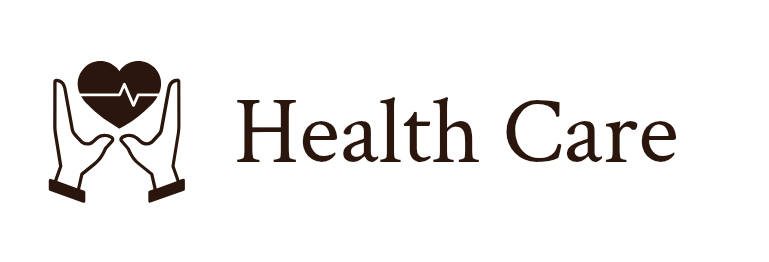Wake up and Smell the Science: How Caffeine from Tea and Coffee is Changing Our Health

Wake up and Smell the Science: How Caffeine from Tea and Coffee is Changing Our Health Are you one of those people who can’t seem to start the day without a steaming cup of coffee or tea? Well, it turns out that your love for caffeine might actually be doing wonders for your health! Yes, you heard it right. Recent studies have shown that caffeine from these popular beverages is not only boosting our alertness and concentration but also providing numerous other health benefits. So, are you ready to wake up and smell the science behind this miraculous compound? Keep reading to find out how caffeine from tea and coffee may just be changing our lives for the better.
Introduction: How Caffeine is Changing Our Health
Caffeine is a central nervous system stimulant and the most widely consumed psychoactive substance in the world. It is found naturally in over 60 plants, including coffee beans, tea leaves, and cocoa beans. Caffeine is also added to some processed foods and beverages, such as energy drinks and colas.
Caffeine affects everyone differently, depending on factors such as age, weight, health status, and medications. In general, moderate amounts of caffeine (200-300 mg per day) are safe for most adults. However, pregnant women and people with certain medical conditions should limit their caffeine intake.
Caffeine has a number of potential health benefits, including improved mental alertness and focus, increased physical endurance, and protection against Parkinson’s disease and dementia. However, it can also lead to side effects such as insomnia, anxiety, irritability, stomach upset, and rapid heart rate.
While more research is needed to fully understand the potential risks and benefits of caffeine consumption, there is no doubt that this popular stimulant is having a major impact on our health.
The Science Behind Caffeine and Weight Loss
Caffeine is a naturally occurring stimulant that can be found in coffee, tea, and other plants. It works by blocking the action of a neurotransmitter called adenosine, which makes us feel tired. Caffeine also increases the release of dopamine and norepinephrine, two other neurotransmitters that help to keep us alert and focused.
While caffeine can certainly give us a much-needed energy boost, its effects on weight loss are more complicated. For one thing, caffeine itself doesn’t directly cause weight loss. However, it can indirectly promote weight loss by increasing thermogenesis, or heat production in the body. Thermogenesis helps to burn calories and promote fat loss.
Caffeine also acts as an appetite suppressant, which can help to reduce calorie intake and promote weight loss. Additionally, caffeine has been shown to increase metabolism and improve physical performance, both of which can lead to increased calorie burning and weight loss.
How Caffeine from Tea and Coffee Can Help Lower Diabetes Risk
We all know that tea and coffee can give us a much-needed energy boost, but did you know that these beloved beverages may also help lower your risk of diabetes?
According to a new study published in the journal Diabetes Care, people who consume caffeine from tea and coffee have a lower risk of developing type 2 diabetes.
The study followed more than 80,000 Japanese adults over the course of 10 years and found that those who consumed at least six cups of green tea or coffee per day had a 16% lower risk of developing type 2 diabetes than those who consumed no caffeine.
While the mechanisms behind this are not yet fully understood, it is thought that caffeine may help to improve insulin sensitivity and decrease inflammation.
So next time you reach for your morning cup of joe, remember that it just might be doing more for your health than you realize!
Tips for Making the Most of Your Daily Cup of Joe
We all know that drinking coffee or tea can give us a much-needed energy boost to help us get through the day. But did you know that there are actually health benefits to drinking caffeinated beverages? Studies have shown that caffeine can help improve mental alertness and cognitive function, as well as increase physical endurance and muscle strength.
So how can you make the most of your daily cup of joe? Here are some tips:
1. Choose quality over quantity. When it comes to coffee, it’s better to go for quality beans over a large quantity of lower-quality beans. The same goes for tea – opt for loose leaf tea instead of teabags. This will ensure that you’re getting the best possible flavor and most beneficial nutrients.
2. Drink it black. If you’re looking to maximize the health benefits of your coffee or tea, drink it black or with just a splash of milk. Adding sugar or cream can negate some of the positive effects of the caffeine.
3. Be mindful of your intake. Caffeine is a stimulant and too much can lead to jitters, anxiety, and insomnia. It’s important to be aware of how much caffeine you’re consuming each day and to limit your intake if necessary. A good rule of thumb is to drink no more than two cups of coffee per day or four cups of tea.
Benefits of Tea: What Different Types of Tea Can Do for You
There are many different types of tea, and each one has its own unique set of benefits. Black tea is the most common type of tea, and it is packed with antioxidants that can help improve your health. Green tea is another popular type of tea, and it is known for its ability to boost your metabolism and help you lose weight. White tea is a less processed form of green tea, and it has even more antioxidants than green tea. Herbal teas are made from a variety of different herbs, and each one has its own set of benefits. Chamomile tea can help you relax, while ginger tea can help settle your stomach.
No matter what type of tea you choose, you are sure to enjoy the many benefits it has to offer. So next time you need a pick-me-up, reach for a cup of hot tea instead of coffee or energy drinks. Your body will thank you for it!
Different types of tea offer different health benefits. For example, green tea is rich in antioxidants and has been linked to a lower risk of heart disease, while black tea has been linked to better gut health. Here are some of the different types of tea and their potential health benefits:
Green tea: Green tea is made from the leaves of the Camellia sinensis plant and is one of the most popular types of tea. It’s rich in antioxidants, which can help protect against cell damage and may reduce the risk of some chronic diseases such as cancer. Green tea has also been linked to a lower risk of heart disease and stroke.
Black tea: Black tea is made from the leaves of the Camellia sinensis plant that have been fermented. It’s the most common type of tea consumed in Britain
and many other countries. Black tea contains less caffeine than coffee but more than green tea. It also contains flavonoids, which are antioxidants that can help protect against cell damage. Black tea has been linked to better gut health, including a lower risk of inflammatory bowel disease (IBD).
Oolong tea: Oolong tea is made from the leaves of the Camellia sinensis plant that have been partially fermented. It’s a traditional Chinese medicine that’s gaining popularity in Western countries. Oolong tea contains caffeine and catechins, which are antioxidants that can help protect against cell damage. Ool
Risks Associated with Too Much Caffeine Intake
Caffeine is a stimulant that can have positive and negative effects on our health. Too much caffeine can lead to increased anxiety, restlessness, and insomnia. It can also cause headaches, stomach upset, and rapid heart rate. Caffeine is addictive and can be difficult to cut back on once you start consuming it regularly. If you are concerned about your caffeine intake, talk to your doctor or health care provider.
Caffeine is a psychoactive drug that has stimulating effects on the brain. It is the world’s most widely consumed psychoactive substance, and it is found in coffee, tea, energy drinks, and chocolate. Caffeine affects everyone differently, and it can have both positive and negative effects on health.
The risks associated with too much caffeine intake include:
-Anxiety: Caffeine can cause anxiety or make anxiety worse. It can also trigger panic attacks in people with panic disorder.
-Insomnia: Caffeine can interfere with sleep and cause insomnia.
-Restlessness: Caffeine can make people feel jittery and restless.
-Headaches: Caffeine can cause headaches or make headaches worse.
-Heartburn: Caffeine can relax the lower esophageal sphincter, which can lead to heartburn.
Conclusion
We have seen how caffeine from tea and coffee can affect our bodies, both positively and negatively. While it is important to remember that too much of anything can be harmful, when incorporated into a balanced diet and lifestyle,
caffeine intake has the potential to provide beneficial health benefits. So go ahead – wake up with a cup of coffee or tea in hand and enjoy the science behind what you are drinking!
